The EAHP EU Monitor is a regular round up of news relevant to hospital pharmacy in Europe.
EAHP’s Annual Report for 2022 is out
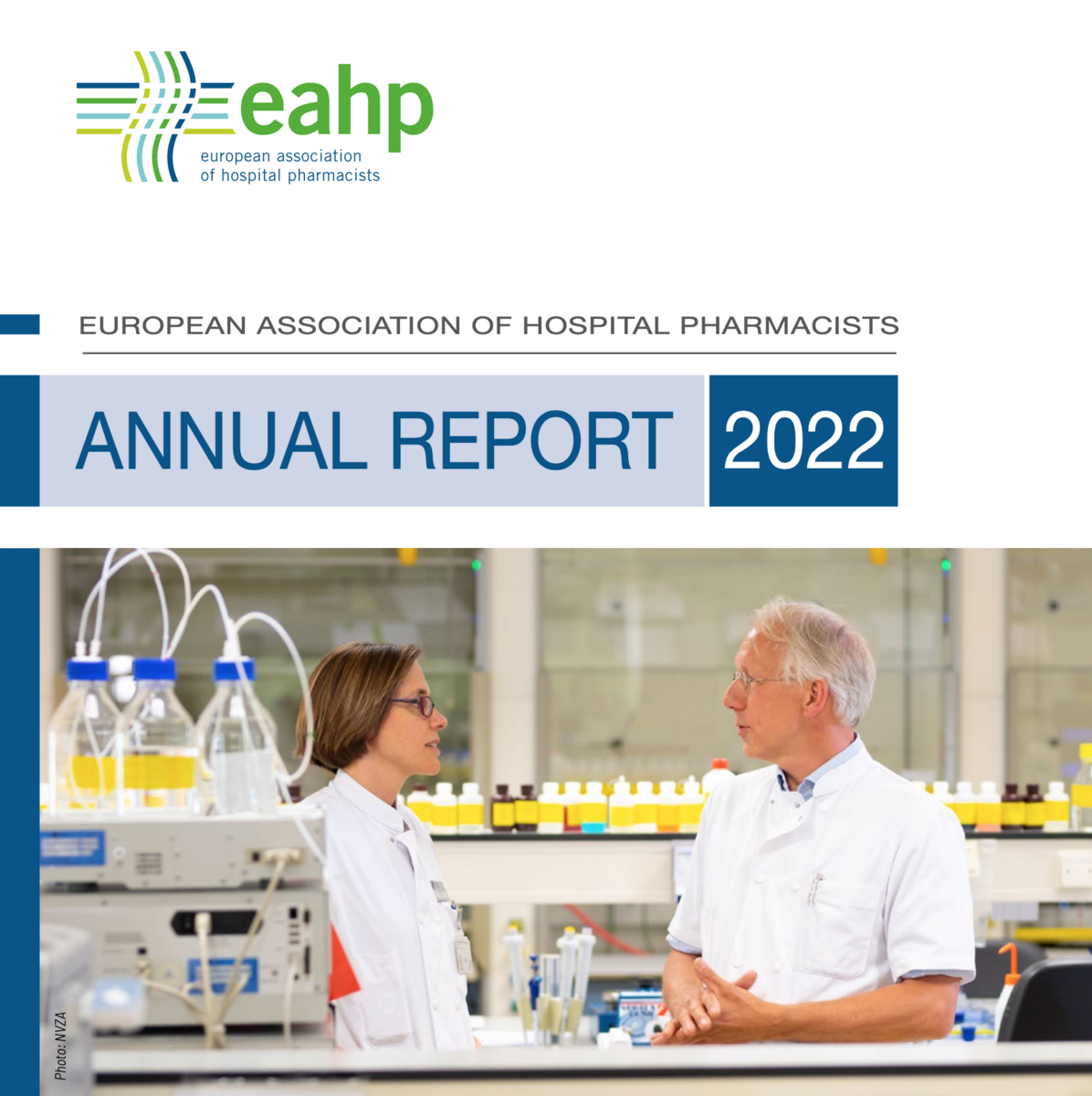 The European Association of Hospital Pharmacists (EAHP) released its 2022 Annual Report which summarises the Association’s achievements in the past year. The report shares information about EAHP’s educational programme, projects – such as the European Statements of Hospital Pharmacy and the EAHP-ESCP Oath to Society – and advocacy work. Many activities centred around the changing roles of pharmacists.
The European Association of Hospital Pharmacists (EAHP) released its 2022 Annual Report which summarises the Association’s achievements in the past year. The report shares information about EAHP’s educational programme, projects – such as the European Statements of Hospital Pharmacy and the EAHP-ESCP Oath to Society – and advocacy work. Many activities centred around the changing roles of pharmacists.
In 2022, EAHP had several Special Interest Groups (SIGs) run in parallel focused on medication errors, hazardous medicinal products, prefilled syringes, automation, gene therapy and eliminating avoidable harm. EAHP’s SIGs gather and evaluate the evidence in specific, innovative and novel fields of hospital pharmacy practice with the aim to address patient needs and to advance the profession. Other milestones mentioned in the Annual Report, include the Association’s COVID-19 Report, the conceptual the framework of patient prioritisation and definition of pharmaceutical acuity and the EAHP Report on the future potential of electronic product information (ePI).
Reach EAHP’s 2022 Annual Report HERE
EMA Guidance for industry to prevent and mitigate medicine shortages
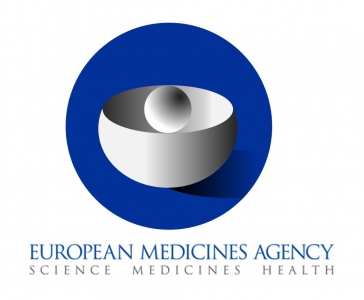 Earlier this month, the European Medicines Agency (EMA) released a new guidance document outlining “Good practices for industry for the prevention of human medicinal product shortages” focused on different actors along the supply chain.
Earlier this month, the European Medicines Agency (EMA) released a new guidance document outlining “Good practices for industry for the prevention of human medicinal product shortages” focused on different actors along the supply chain.
The guidance was developed by the Heads of Medicines Agencies (HMA) / EMA Task Force on the Availability of Authorised Medicines for Human and Veterinary Use, following an analysis of the causes of shortages and regulators’ first-hand experience in coordinating the management of shortages. Industry associations were consulted during its establishment. It provides recommendations for marketing authorisation holders, wholesalers, distributors and manufacturers to minimise the occurrence of medicine shortages and their impact. Recommendations listed in the guidance include:
- informing national competent authorities of potential or actual shortages as early as possible and providing detailed information to better predict the possible impact and implement preventive measures;
- increasing transparency relating to shortage information through increased communication and knowledge sharing;
- increasing the accuracy of notification detail provided, where notification has key information about the potential shortage;
- establishing robust shortage prevention and shortage management plans;
- optimising pharmaceutical quality systems and increasing resilience of complex, multinational supply chains throughout the lifecycle of a medicine;
- timely communication between the various stakeholders in the medicine supply chain;
- general principles to promote fair and equitable distribution of medicines to meet the needs of patients; and
- taking appropriate steps to minimize the risk of parallel trade or export exacerbating shortages.
Read the guidance HERE
ECDC Surveillance Report on the spread of E. coli carrying blaNDM-5
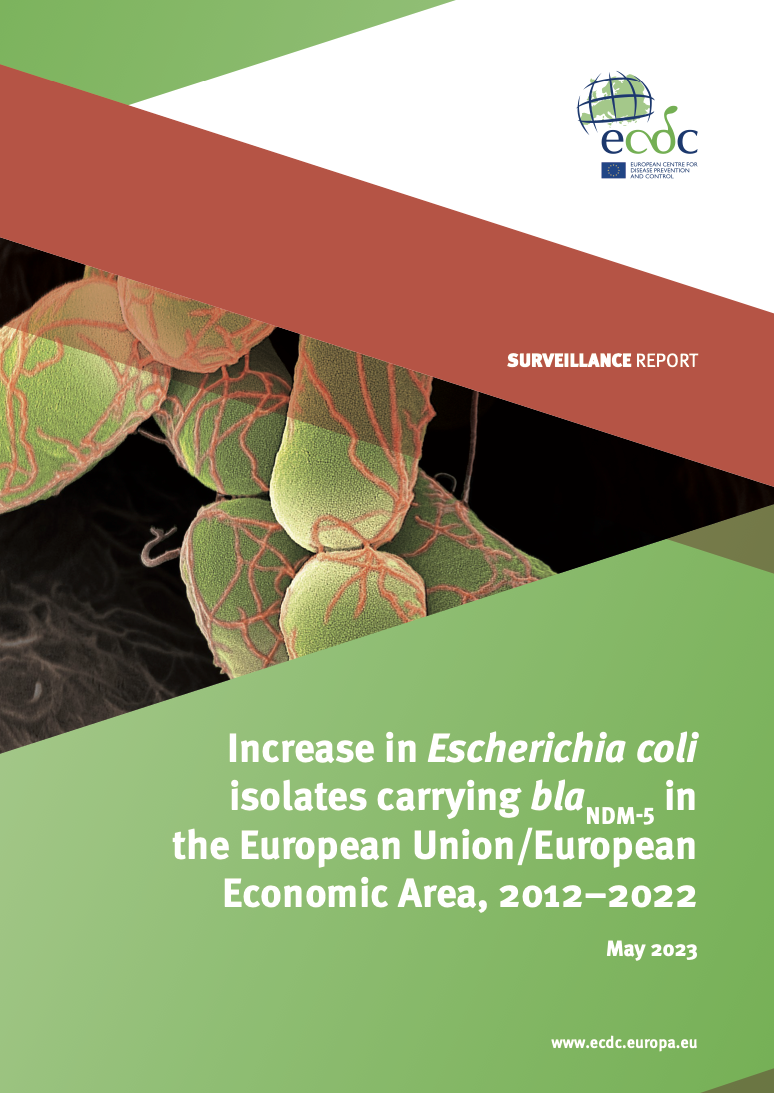 The European Centre for Disease Prevention and Control (ECDC) issued a Surveillance Report focused on the Increase in Escherichia coli isolates carrying blaNDM-5 in the European Union/European Economic Area 2012 – 2022 that are spreading rapidly and on a large geographical scale.
The European Centre for Disease Prevention and Control (ECDC) issued a Surveillance Report focused on the Increase in Escherichia coli isolates carrying blaNDM-5 in the European Union/European Economic Area 2012 – 2022 that are spreading rapidly and on a large geographical scale.
Researchers analysed 874 E. coli isolates carrying blaNDM-5, from 13 EU/EEA countries. Despite limited completeness of data, nearly 85% of the isolates with available information on travel and/or hospitalisation were linked to countries outside of the EU/EEA, mainly in Africa and Asia. The report emphasizes that based on the growing number of E. coli strains carrying the blaNDM-5 gene that makes them resistant to carbapenems, antibiotics are often used as the last resort to treat serious E. coli infections. This is an alarming trend that could also impact countries of EU and the European Economic Area (EEA) since as noted in the report travel-related acquisition may still be the most likely origin of these isolates.
Read the report HERE
European Week Against Cancer 2023 is in full swing
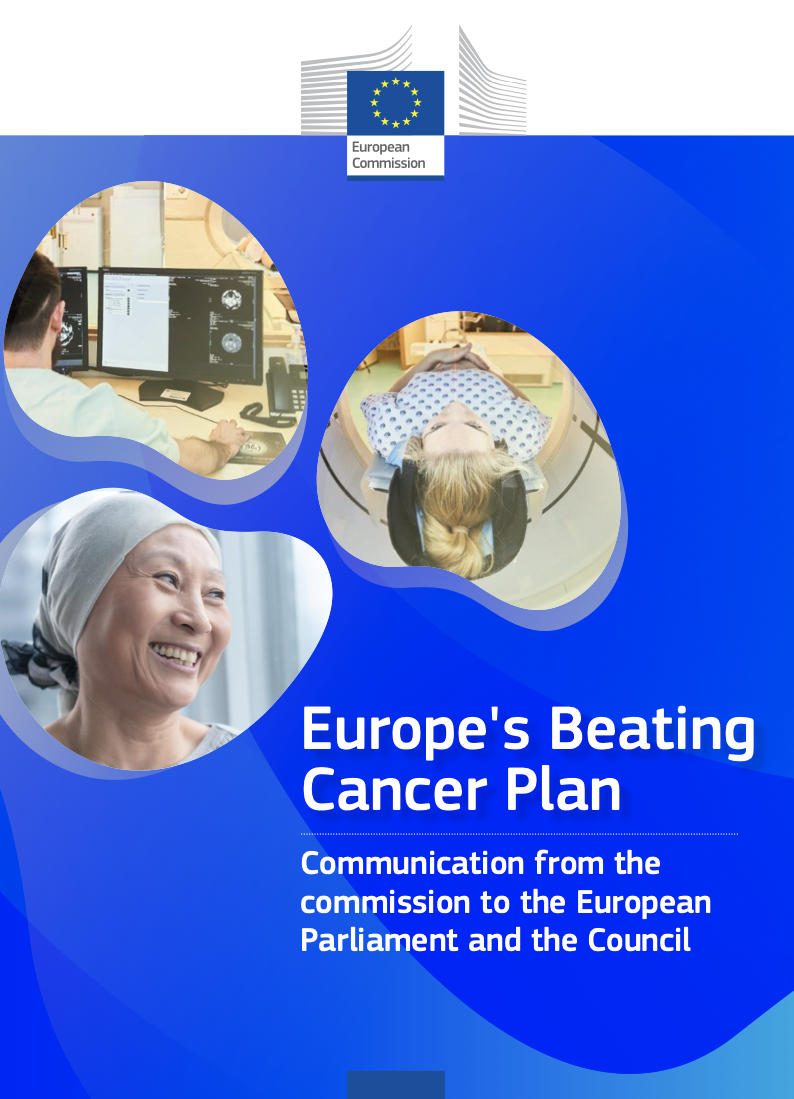 The European Week Against Cancer takes place every year between 25 and 31 May to raise awareness about cancer prevention, access to treatment and support for patients and people with a history of cancer.
The European Week Against Cancer takes place every year between 25 and 31 May to raise awareness about cancer prevention, access to treatment and support for patients and people with a history of cancer.
During this year’s edition, the European Commission is focusing on raising awareness about EU4Health-funded cancer projects, which contribute to the aims of Europe’s Beating Cancer Plan. To this end, a webinar was hosted on the first day of European Week Against Cancer to showcase selected projects that receive funding via the EU4Health programme. EAHP is contributing via a social media campaign outlining the role of hospital pharmacists.
Europe’s Beating Cancer Plan is a political commitment to turn the tide on cancer and together with the EU Mission on Cancer has already put several measures into action. The four key action areas touch on prevention, early detection of cancer, diagnosis and treatment as well as improving the quality of life of cancer patients and survivors.
Learn more about the EU4Health-funded cancer projects HERE
Find more information on Europe’s Beating Cancer Plan HERE
WHO/Europe Evaluation Report on COVID-19 vaccine communication
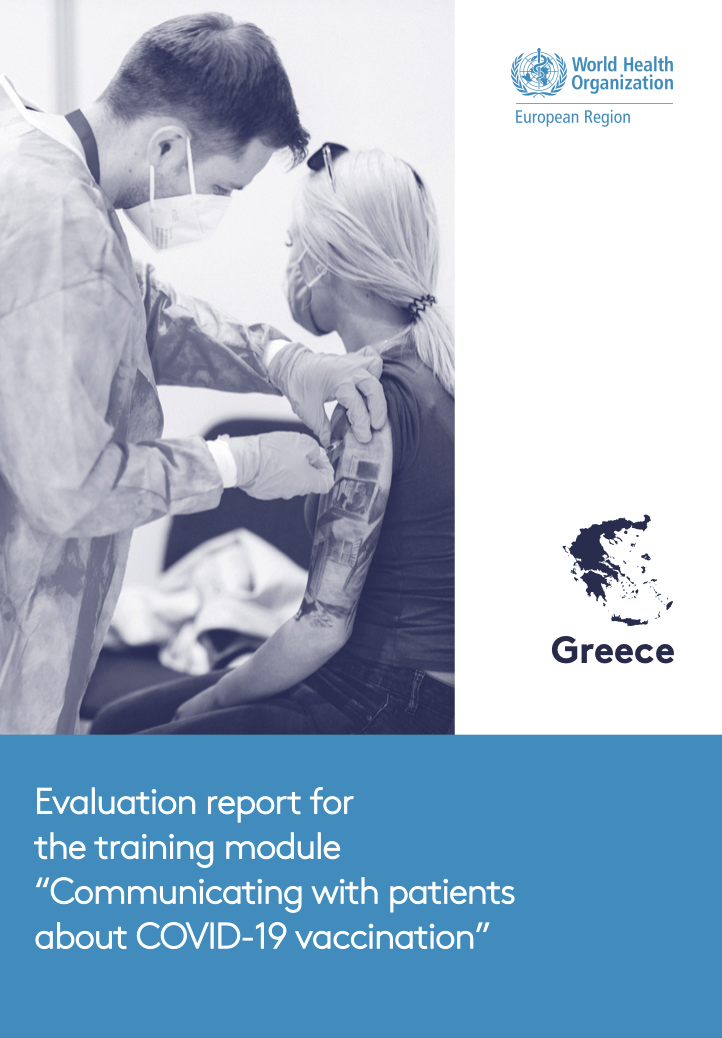 WHO/Europe recently shared information on the positive impact of one of its communication-focused training modules for proactively addressing questions and concerns raised by patients and the public.
WHO/Europe recently shared information on the positive impact of one of its communication-focused training modules for proactively addressing questions and concerns raised by patients and the public.
The report analysis the impact of the training module “Communicating with patients about COVID-19 vaccination” and its implementation in Greece. The evaluation was conducted online, which allowed 118 health workers from all over Greece to participate. Data for the evaluation were generated using a combination of quantitative and qualitative methods: pre- and post-training questionnaires, observations of how participants used their communication skills in simulated consultations, in-depth interviews, and focus-group discussions.
Read the report HERE
EJHP: Evaluation of drug cost savings related to clinical trials from the perspective of a university hospital
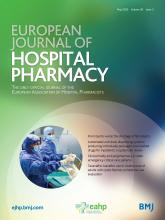 A recent online first article published in the European Journal of Hospital Pharmacy (EJHP) looks at the economic impact of clinical trial drug cost savings in a French academic institution from the perspectives of both the French Health Insurance (FHI) and hospitals. Researchers carried out a retrospective, observational, cost-saving analysis on all the clinical trials initiated in the university hospital between 2015 and 2020. With ever-changing prices and new innovative treatments, such cost avoidance must be regularly evaluated. The study provided objective evidence that clinical trials could achieve potential cost savings for the FHI and hospitals, in addition to the potential benefit to patients of having access to innovative investigational medicinal products.
A recent online first article published in the European Journal of Hospital Pharmacy (EJHP) looks at the economic impact of clinical trial drug cost savings in a French academic institution from the perspectives of both the French Health Insurance (FHI) and hospitals. Researchers carried out a retrospective, observational, cost-saving analysis on all the clinical trials initiated in the university hospital between 2015 and 2020. With ever-changing prices and new innovative treatments, such cost avoidance must be regularly evaluated. The study provided objective evidence that clinical trials could achieve potential cost savings for the FHI and hospitals, in addition to the potential benefit to patients of having access to innovative investigational medicinal products.
Read the article HERE
[Consultations]
Drug Information Centre Survey
The University Hospitals of Leuven (UZ Leuven) is developing a drug information centre (DIC) to expand their current services. A DIC is defined as a centre that provides technical and scientific information about drugs in an objective and timely manner to ensure the safe and effective use of therapeutic and diagnostic pharmaceuticals. To support the development of the DIC in UZ Leuven a survey has been designed aiming to collect information about the operations, service characteristics and governance of DIC’s already operating in Europe. This survey will take approximately 3-20 minutes to complete depending on the path which is followed.
Contribute to the survey via the following LINK
Bedside clinical pharmacists in Europe
In this research, organized by the Semmelweis University, Hungary the position of bedside clinical pharmacists in hospitals will be assessed to gain insight into the routine practices and the provided clinical pharmacy services. The researchers would like to hear your opinion based on your experiences, so there are no correct or incorrect answers. It takes about 15 minutes to complete the questionnaire.
Contribute to the survey via the following LINK
European Paediatric Formulary: Clonidine hydrochloride oral solution
The European Directorate for the Quality of Medicines & HealthCare (EDQM) has just released Issue 6 of Pharmeuropa PaedForm, in which the draft text for Clonidine Hydrochloride 10 micrograms/mL Oral Solution is published for public consultation with a view to its later inclusion in the European Paediatric Formulary. The deadline for comments is 30 June 2023. This is the seventh monograph elaborated on by the PaedF Working Party. EDQM welcomes all comments on this new monograph from users and interested parties.
Learn more about this consultation HERE
























 The European Association of Hospital Pharmacists (EAHP) released its 2022 Annual Report which summarises the Association’s achievements in the past year. The report shares information about EAHP’s educational programme, projects – such as the European Statements of Hospital Pharmacy and the EAHP-ESCP Oath to Society – and advocacy work. Many activities centred around the changing roles of pharmacists.
The European Association of Hospital Pharmacists (EAHP) released its 2022 Annual Report which summarises the Association’s achievements in the past year. The report shares information about EAHP’s educational programme, projects – such as the European Statements of Hospital Pharmacy and the EAHP-ESCP Oath to Society – and advocacy work. Many activities centred around the changing roles of pharmacists. Earlier this month, the European Medicines Agency (EMA) released a new guidance document outlining “Good practices for industry for the prevention of human medicinal product shortages” focused on different actors along the supply chain.
Earlier this month, the European Medicines Agency (EMA) released a new guidance document outlining “Good practices for industry for the prevention of human medicinal product shortages” focused on different actors along the supply chain. The European Centre for Disease Prevention and Control (ECDC) issued a Surveillance Report focused on the Increase in Escherichia coli isolates carrying blaNDM-5 in the European Union/European Economic Area 2012 – 2022 that are spreading rapidly and on a large geographical scale.
The European Centre for Disease Prevention and Control (ECDC) issued a Surveillance Report focused on the Increase in Escherichia coli isolates carrying blaNDM-5 in the European Union/European Economic Area 2012 – 2022 that are spreading rapidly and on a large geographical scale. The European Week Against Cancer takes place every year between 25 and 31 May to raise awareness about cancer prevention, access to treatment and support for patients and people with a history of cancer.
The European Week Against Cancer takes place every year between 25 and 31 May to raise awareness about cancer prevention, access to treatment and support for patients and people with a history of cancer. WHO/Europe recently shared information on the positive impact of one of its communication-focused training modules for proactively addressing questions and concerns raised by patients and the public.
WHO/Europe recently shared information on the positive impact of one of its communication-focused training modules for proactively addressing questions and concerns raised by patients and the public. A recent online first article published in the European Journal of Hospital Pharmacy (EJHP) looks at the economic impact of clinical trial drug cost savings in a French academic institution from the perspectives of both the French Health Insurance (FHI) and hospitals. Researchers carried out a retrospective, observational, cost-saving analysis on all the clinical trials initiated in the university hospital between 2015 and 2020. With ever-changing prices and new innovative treatments, such cost avoidance must be regularly evaluated. The study provided objective evidence that clinical trials could achieve potential cost savings for the FHI and hospitals, in addition to the potential benefit to patients of having access to innovative investigational medicinal products.
A recent online first article published in the European Journal of Hospital Pharmacy (EJHP) looks at the economic impact of clinical trial drug cost savings in a French academic institution from the perspectives of both the French Health Insurance (FHI) and hospitals. Researchers carried out a retrospective, observational, cost-saving analysis on all the clinical trials initiated in the university hospital between 2015 and 2020. With ever-changing prices and new innovative treatments, such cost avoidance must be regularly evaluated. The study provided objective evidence that clinical trials could achieve potential cost savings for the FHI and hospitals, in addition to the potential benefit to patients of having access to innovative investigational medicinal products.